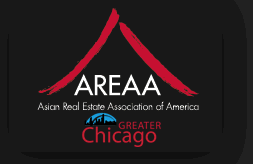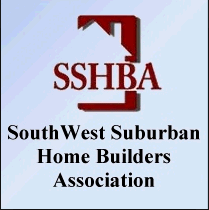GIT Sponsoring Asian Real Estate Association of America Leadership Breakfast
Greater Illinois Title Company will be sponsoring the Asian Real Estate Association of America (AREAA) Leadership Enhancement Program Breakfast on March 6 at the Chicago Mercantile Exchange. This program is designed to assist the next generation of leaders in the Asian and Pacific Islander community. The Asian Real Estate Association of America is a professional organization dedicated to promoting sustainable home ownership in Asian American Communities and increasing business opportunities for real estate professionals.
Greater Illinois Title Company-Lead Sponsor for the Metro-Chicago Apartment Summit
The 2014 Metro-Chicago Apartment Summit is being held on Thursday, March 6th from 7:30 AM to 11:30 AM at the historical landmark building, Germania Place. A panel of experts will discuss the current state of the market and financing options. A managing assets panel will identify standards and amenities expected by today’s tenants. The Metro-Chicago Apartment Summit will be held at Germania Place, 108 West Germania Place in Chicago which is located one half block south of North Avenue off of North Clark Street.

GIT- Program Sponsor of CAR Commercial Forum
Over one hundred commercial real estate professionals participated in round table discussions ranging from financing options, regulatory matters and zoning issues at the CAR Commercial Forum. A networking reception followed the meeting. Greeting the CAR Commercial Forum guests were GIT’ s Bob Dickinson, Sara Hulsebus and Alyssa Schmiege.

Southwest Suburban Home Builders Association Elects GIT Honorary Life Time Director
GIT Congratulates Steve Peca!
The SouthWest Suburban Home Builders Association (SSHBA) has elected Stephen G. Peca of Greater Illinois Title Co. to be an Honorary Life Time Director. Steve has been a member of the SSHBA since 1973. He is currently an Executive Officer on the Southwest Suburban Home Builders Association Board of Directors as Secretary and has been for at least the past 25 years. Steve has also chaired several committees throughout his years as an SSHBA member.

The Southwest Suburban Home Builders Association is a professional organization representing and promoting the interest and advancement of the home building industry. The association promotes high standards, professionalism and service within the building industry and also supports the American dream of home ownership by being the unified voice for building industry issues, promoting political involvement and awareness. The SSHBA also provides educational programs, services, activities and networking to all of its members.
The success of the Southwest Suburban Home Builders Association is largely due to the dedication and hard work of its board of directors. The growth of the association is due to involved and caring members.
The SSHBA began in 1946. It currently represents around 200 industry members in the south and southwest suburbs of Chicago.
SSHB.
10767 W. 163rd. Place
Orland Park, IL 60467
P) 708-349-4242
Email:info@sshba.com
GIT’s Rae Torbik Appointed to Housing Authority
Rae Torbik, Regional Account Manager with Greater Illinois Title Company was appointed to a three-year term to serve on the Board of Directors of the Affordable Housing Corporation of Lake County (IL). AHCLC is a non-profit agency that increases and preserves affordable housing opportunities throughout Lake County. Its programs help residents buy, improve and save their homes from foreclosure. The Board designs programs, policies, and strategies to promote affordable housing across the county. Last year, over 450 households were prepared for successful homeownership and over 400 households were prevented from going into foreclosure.

Congratulations Rae Torbik !!!
The New Era in Closings: CFPB Publishes Final Rule on Mortgage Disclosures
By: Gregory M. Kosin, President, Greater Illinois Title Company
The Consumer Financial Protection Bureau released its long awaited regulations last month that will change the way consumers shop for and close on residential real estate transactions. The new regulation combines disclosures required under the Truth in Lending Act and the Real Estate Settlement Procedures Act.
At the CFPB rollout, the focus was on consumers: to help them make fair comparisons of different loan offerings, to provide for a better understanding of the long and short term costs of a loan and to provide a more detailed accounting of their transaction. The CFPB sought to determine what best helped borrowers understand the costs of their loans through extensive testing.
This regulation is far-reaching and will take a great deal of time for the industry to digest and prepare for in the coming months. The new rule affects every lender, every borrower, every seller of residential real estate and every title company including all attorney agents. The rule establishes the single biggest change to the residential loan process and consumer disclosures since the original RESPA regulation was implemented in 1974.
The title industry is generally pleased that the CFPB listened to industry professionals on many issues. However, the title industry is working to change a portion of the rule which refers to owner’s title insurance as “optional” for home buyers. A consumer protection agency telling consumers that owner’s title insurance is an option is extremely puzzling. It will mean that buyers may be dissuaded from obtaining the same protection that lenders receive from title insurance.
The Final Rule is effective August 1, 2015 which gives the industry time to prepare for its implementation.
The regulation applies to most consumer mortgages except home equity loans, reverse mortgages and mortgages secured by a mobile home. Commercial loans are not covered by the new rule.
The new Loan Estimate prepared by the lender or mortgage broker, must be provided to the borrowers within three days of the application. It provides loan terms, projected payments, closing cost details and an estimated cash to close. The Loan Estimate is also set up to allow consumers an easier way to do comparison shopping with other loan offerings.
Included in the rule is a new three day disclosure requirement for lenders. Lenders must provide to consumers the Closing Disclosure, which replaces the HUD-1, with final figures three business days prior to closing. A new three business day closing re-disclosure will be triggered by one of the following three events:
- A one eighth of 1 % change in the APR
- A change in the loan product (e.g. fixed rate to adjustable)
- The addition of a pre-payment penalty
In addition, tolerances were tightened up and expanded.
The next priority for the CFPB is to work with the industry to encourage the use of the e-signing of documents, e-closings and e-recordings to enhance the closing experience for consumers.
The title industry will continue to work with the CFPB over the next twenty-one months to develop training, implementation, and compliance for the industry.
Welcome to the new era in closings!
Housing Market Index Bodes Well for the Home Building Industry
After being struck by the 2008-09 recession, the home building industry seems to be clawing its way back to success, and investors in the right companies could do well in the coming years.
When the the National Association of Home Builders/Wells Fargo Housing Market Index climbs above 50, homebuilders begin to expect better times ahead. So investors in that sector got good news on Dec. 17, when word broke that the index had risen to 58. After getting devastated by the 2008-09 recession, the homebuilding industry seems to be clawing its way back to success, and investors in the right companies could do well in the coming years.
Coming on strong
Homebuilders have not been this confident since July. For the last four months, the housing market index has continued to fall, amid uncertainty caused by the recent government shutdown and potential moves by the Federal Reserve. This month’s positive reading is attributed to homebuilders’ more optimistic outlook on current sales, future sales trends, and buyer traffic.
For December, homebuilders rated current sales and future sales trends the highest. They were less confident about buyer traffic; although its score did increase by three points to 44, it’s still below 50. Ultimately, current sales were most impressive, posting a score of 64 — a number they previously hadn’t reached since December 2005.
Finally growing
For the past five years, the housing market has been slowly recovering after hitting rock bottom in late 2008 and early 2009. The housing market crash not only caused home values to fall dramatically, but also triggered the worst economic recession in more than three decades. Between summer 2007 and fall 2009, the Great Recession and the housing market burst brought about a dramatic reduction in consumer spending, along with a drop in the stock market, a financial crisis among banks, and a large decline in business investments. These effects quickly unleashed a string of negative ramifications on the American people.
Businesses cut back their employees, leading to a loss of over 8.4 million U.S. jobs, which prompted family incomes to decline along with some families losing their health coverage. This led to further mortgage defaults and even more houses being put up for sale by lenders. All of these factors held the economy down, preventing any growth from happening.
However, every storm passes, and slowly the U.S. economy dug itself out of the hole as home prices stabilized. Since then, we have started growing again and the unemployment rate has started coming down. The one thing that still serves as a reminder of what got us into the mess is the stricter lending standards. Fewer people can qualify for a loan today than could before the crash. That being said, those that have been able to make the purchase have likely received a good deal on their home thanks to lower interest rates.
Feeling optimistic
Homebuilders are now feeling better about overall industry conditions after the commerce department reported that the number of Americans desiring to own a new home had risen to 444,000. Before 2008, a healthy housing market was represented by at least 700,000 new home purchases a year.
This latest homebuilder confidence reading signifies that the homebuilders think those days might not be too far away again. According to the National Association of Home Builders, “The growth of new homes built and purchased will create at least three jobs per home along with producing $90,000 in tax revenues.” The impact of this will greatly benefit the economy going forward.
Chicago Title Industry Update – September 2012
The title industry is benefitting these days from the record low mortgage interest rates as many rush to take advantage of new historical lows. Although about one third of parties applying for a new loan are not approved due to credit or appraisal issues, many are taking advantage of locking into shorter term loans including ten year mortgages. Existing home sales were up in August partially fueled by the low rates. Meanwhile, the American Land Title Association (ALTA), our industry’s national trade group, is joining with the National Association of REALTORS®, the Homebuilders and the Mortgage Bankers Association to urge passage of a one year extension to temporary high cost conforming loan limits for Fannie, Freddie and FHA. Although the deadline is October 1st and action is not expected by that date, the groups vowed to continue to work to extend the limits to help an already crippled housing industry.
One of the hot issues our industry has faced is the onset of PTF’s or Private Transfer Fees. A PTF is a fee which is established when a developer agrees to add a covenant to title that requires a future owner to pay a percentage of the selling price (usually 1%) to a designated trust for the next 99 years. It then becomes a lien on the property like an HOA assessment. To date, 38 states, including Illinois, have acted to ban or severely limit PTF’s because of the negative impact on closing costs and depressing home prices in those communities that require their payment. The net result of PTF’s is that the sellers earn less money on their most important investment and they eat into seller’s equity at a time when home prices have not been appreciating.
The land title industry, both here in Illinois and across the country, continues to be involved in mortgage fraud prevention. Most recently, our company participated with another title company and a number of local, state and federal agencies to shut down a ring of perpetrators of mortgage fraud that the FBI and HUD had been tracking for over a year. As fraud is the second leading cause of title claims, the title industry remains on the frontline of preventing fraud and maintaining the integrity of real estate transactions.
Finally, ALTA has been reviewing and commenting on new prototypes for combined mortgage disclosure forms required under the Truth in Lending Act (TIL) and RESPA. The latest round of revisions from the Consumer Financial Protection Bureau may lead to more changes to the HUD-1 Settlement Statement. Finding harmony between simplifying disclosures for consumers and facilitating the closing by the industry continues to be a challenge. The land title industry is vital to the US economy as we reduce risks to lenders by giving banks the confidence to lend. Our work assures homeownership rights and provides assurances from the private sector necessary for capital to be utilized in the economy. And at no cost to taxpayers, the title industry collects over $3 billion per year in delinquent real estate taxes and over $1.8 billion in back income taxes. Now that’s a deal no taxpayer could argue with!
Until next time: “A person learns by two things. One is reading. The other is association with smarter people.” – Will Rogers








